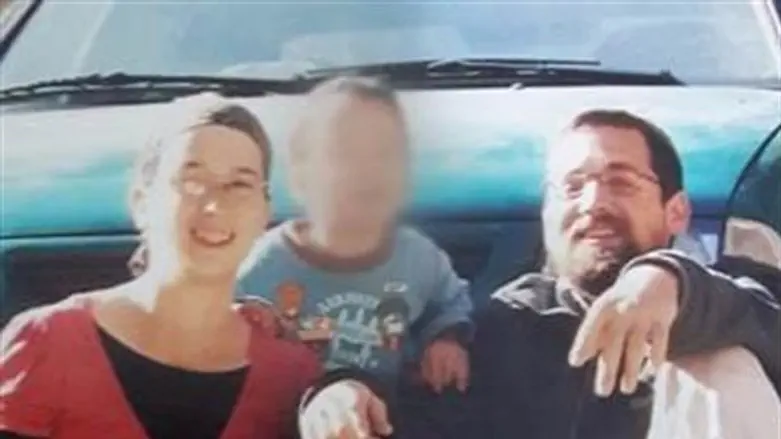
Bat-Sheva Sadan, whose parents Eli and Dina Horowitz were murdered by terrorists, posted this moving message in Hebrew:
As usual, there will be torrents of words, countless exclamation points, headlines painted in red and questions at the end of every sentence, in the Israeli press. Some will be shocked, some will condemn, some will blame, others will call for a response and many will seek words of comfort.
If the murders are mentioned at all in the rest of the world's media, they will probably find a way to blame the victims.
The inside sections of the Israeli newspapers will tell about Eitam and Naama, a wonderful, bright and sensitive couple on their way home from an evening spent with friends in Elon Moreh. The coming days will witness attempts to add points of debate, words of compassion, statistical data to round out the story.
After all, there have been 29 couples murdered since the founding of the State of Israel, leaving behind dozens of children who grew to adulthood without parents. Articles will ask what to do, how to tell them, how they are going to be raised – at their grandparents or perhaps at uncles and aunts? – debate whether they will stay in their parents' home or move. All these questions have been asked in the past and each bereaved family found its own answers.
But no one, no one at all, will find the words that can enter the soul of seven-year-old Nitsan Yitzhak, who, just yesterday morning, held his Four Species with a child's excitement while his father explained how to hold them properly and his mother watched with joy in her eyes. Today he awoke to the first day in a life where he will be unable to say "Look, Abba – Listen, Imma!"
And no one will ask or write about Matan Hillel, the eldest child, all of nine years old. whose life will never be the same. And although Matan knows much about so many things, he will not be able to learn the hardest lesson in his life with his father. And although he is only nine, he is already thinking about his Bar Mitzva.
He already realizes that there will be masses of people there, relatives and uncles, neighbors and friends, but no father will say the traditional words "Blessed is He Who has absolved me from responsibility [for the boy's sins now that he has reached maturity].'" And when he looks at the women's section, there won't be a mother gazing at him with a smile filled with trust and confidence in his ability.
And no one will find the words to contain the thoughts of four-year-old Neta Eliezer, who is used to countless kisses and hugs, and a mother who tells him how sweet he is while she presses him to her, and whose father will never again place him on his knee to teach him his letters, and tell him of the sweetness of Torah verses. That's it. Not a vestige of all of this will remain.
We have no way of knowing if he will remember those moments when Imma bent down to hear a long sentence that he said to her, or when Abba allowed him to feel important, holding the car keys. We don't even know if he will remember how they looked, their smell, the sounds of their voices.
All the things little Itamar needs will be bought, diapers and bottles, formula and wipes will be donated, but no one will ask, no one among all those murmuring words will look at this four-month-old baby and ask: Isn't it true that none of these formulas are as tasty as mother's milk?
We don't want to hear the answer anyway.
Because anyone who has ever felt a mother's hug and has seen himself reflected in his father's eyes, will always be able to tell the difference between a substitute and the real thing.
Translated by Rochel Sylvetsky
